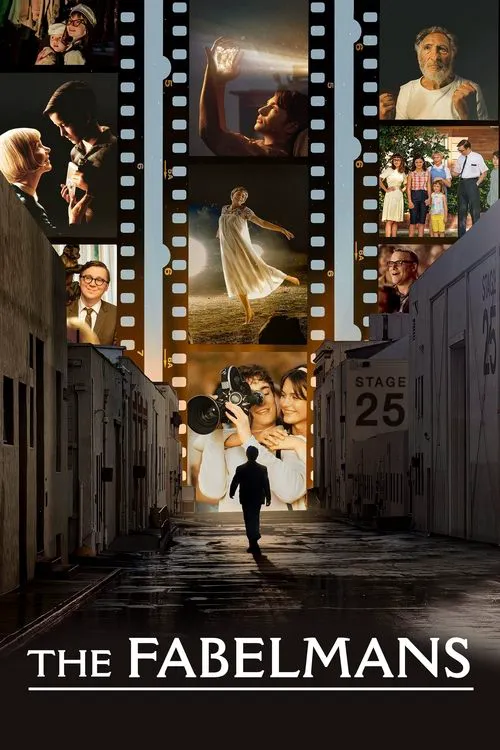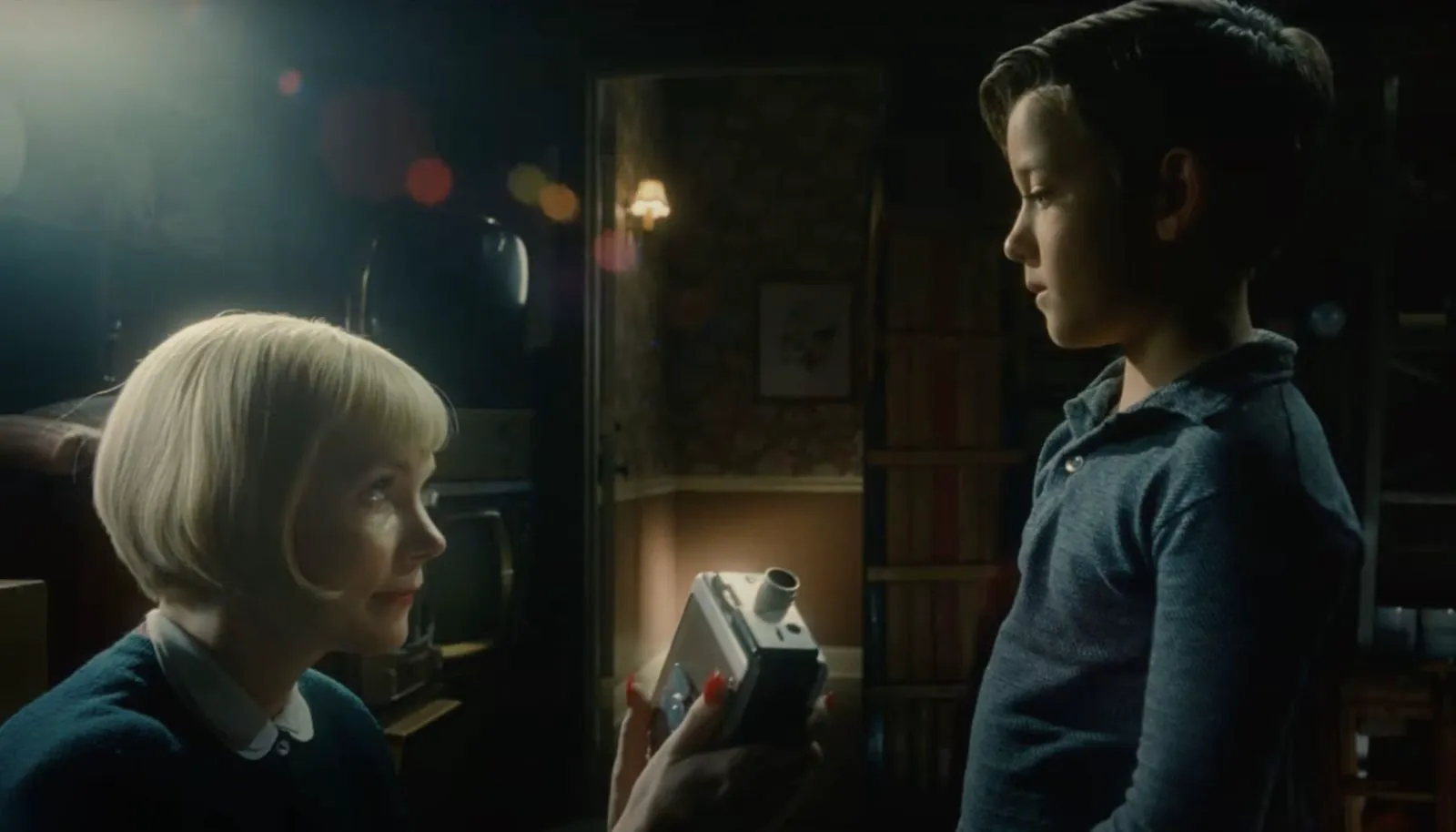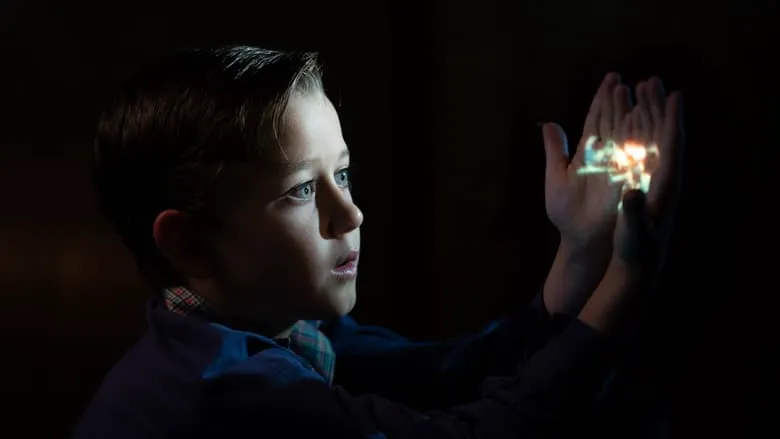The Fabelmans

Plot
The Fabelmans is a poignant coming-of-age story set in the idyllic but complex world of 1960s post-war American suburbia. The film, written and directed by Steven Spielberg, is a deeply personal and nostalgic look back at the director's own childhood experiences and the transformative power of cinema. The story centers around Samuel "Sammy" Fabelman, a young and curious boy growing up in Scottsdale, Arizona. The Fabelman family, consisting of Sammy, his parents Mitzi and Binyamin, and younger sister Annabelle, is portrayed as loving and supportive, with a strong emphasis on family values and tradition. However, as the narrative unfolds, subtle hints of tension and unease begin to surface, threatening the seemingly perfect facade of the Fabelman household. Sammy's boundless enthusiasm and creativity are evident from an early age, as he becomes increasingly fascinated with the art of filmmaking. Inspired by the Technicolor epics of Cecil B. DeMille and the gritty realism of Akira Kurosawa, Sammy begins to experiment with his own amateur films, piecing together narratives, characters, and cinematic techniques that are both charming and endearing. As Sammy's filmmaking skills improve, his parents take notice, and his father, Binyamin, a computer engineer and amateur inventor, offers to purchase a Steenbeck 35mm film viewer to aid in Sammy's creative pursuits. This gesture marks a significant turning point in the narrative, as Sammy's access to new technology and artistic freedom emboldens him to explore more complex and mature themes in his storytelling. However, beneath the surface of the Fabelman's seemingly idyllic existence lies a family secret that Sammy begins to uncover as he reaches adolescence. Mitzi, Sammy's mother, struggles to conceal her troubled past, repressed emotions, and hidden conflicts with her husband, which both Binyamin and other family members seem reluctant to acknowledge. As Sammy watches his mother's mood swings and emotional outbursts, he becomes increasingly desperate to understand the source of her pain and the sense of unhappiness that pervades the household. In a bid to make sense of the turmoil surrounding him, Sammy turns to his films, using them as a subconscious coping mechanism to navigate the treacherous waters of adolescence and family dynamics. His increasingly mature themes and complex characters in his amateur productions serve as a reflection of the underlying tensions and anxieties within the Fabelman family. Meanwhile, Sammy's friendships with his family's neighbors, particularly the charming but troubled Wolfgang Müller, introduce him to the complexities of human relationships and the fragility of adolescent bonds. The enigmatic and slightly menacing figure of Sid Sheinberg, an older male neighbor with a penchant for aggressive filmmaking, serves as a red herring for Sammy's evolving identity and questioning of the norms he has been taught by his family. Sammy's story shifts into higher gear when he begins working with his best friend, an aspiring actress named Natalie Fleming, who possesses charm and beauty that prove captivating for young audiences. Unfortunately, due to the realities of their contrasting socio-economic backgrounds, Sammy soon understands he will not achieve a happy ending in "The American Boy" film. As Sammy strains to reconcile the gap between his artistic ambitions and the hardships of his family's precarious existence, he discovers that his characters' struggles and joy do find something beautiful within 'the art of film'. Eventually, at an age when his peers are about to mature into adults with all their secrets and pasts unfolded to their successors, young Sammy is left to ponder on the power of art to help in seeing the truth about one's family - acknowledging its problems without shying away.
Reviews
Astrid
Seriously, can we please ask these directors to stop making movies that pay homage to themselves or writing love letters to cinema? The biggest problem after watching this film is that it completely fails to capture any unique characteristics of the character. Plenty of kids have experienced their parents' divorce, loved movies from a young age, and aspired to become directors. Besides the director indulging in self-admiration (even the school bully reflects on himself after watching his film – how narcissistic is that?), what's truly special about this story? And those superficial, cliché-ridden lines of dialogue definitely don't count. P.S. I think Michelle Williams aiming for an Oscar win with this performance might be a bit of a stretch. Her acting feels somewhat exaggerated.
Miles
Technically, it's as impeccable as ever, but after spending two and a half hours watching the whole film, I still can't understand why I should care about Spielberg's childhood... Other people pay to see a therapist; turns out we have to pay to watch Spielberg work through his childhood family issues.
Daniel
"The Fabelmans" doesn't quite fabricate dreams. Surprisingly, Spielberg tells a story of how dreams repeatedly betray themselves in the face of reality's companionship and assault. The most beloved medium records the seeds of disintegration, each premiere carrying an extra layer of melancholy. Does cinema really matter? Not at all, because it's nothing in the face of life's overwhelming currents. But then again, nothing seems more important, because if we lose even that, perhaps we truly have nothing left. It's not passion that drives us to believe in dreams again, but desperation. 3.5
Kennedy
I quite enjoyed this film; it's essentially about how cinema can redeem a person. It also reminds us that cinema's most unique value is to allow us to see the world through a different lens. A film fails if it doesn't offer a unique perspective. And in Sammy's coming-of-age, the most defining event is when he captures his mother's affair with his camera. A profoundly cinematic moment arrives unexpectedly. While other children might condemn their mother's betrayal, Sammy chooses forgiveness. Because in the footage of the affair, he sees his mother's struggle and happiness. Cinema turns something already done into something new...
Articles
1. Review of "The Fabelmans" - Steven Spielberg's Family Album

Spielberg’s Open Therapy Session: A $40 Million, 3-Hour FilmSteven Spielberg’s latest film, “The Fabelmans,” isn’t just a movie; it’s a cinematic therapy session, a heartfelt and surprisingly candid e
2. Film Review: Cinema is an Art of Interweaving Illusion and Reality, Sorrow and Joy

The Fabelmans: A Spielbergian Journey into Memory and ArtSteven Spielberg’s indelible mark on cinema is undeniable, and his 2022 film, The Fabelmans, offers a compelling glimpse into the formative yea
Recommendations




